The lace-maker: ‘We make something that the Chinese can’t copy’
Tessa Waugh meets Cluny Lace, the only company flying the flag for British lace.
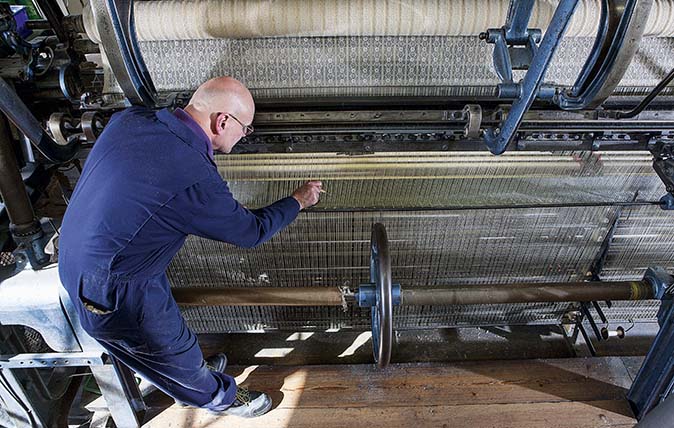

Ilkeston in Derbyshire might be the historic centre of British lace-making, but, nowadays, there’s only one company flying the flag for this highly decorative textile. Cluny Lace, belonging to the Mason family, has an impressive pedigree reaching back to before the Industrial Revolution and Charles Mason represents the ninth generation of his family to run the firm.
‘We make something that the Chinese can’t copy,’ he explains. ‘Ilkeston specialised in geometrical-style laces called Cluny and our pattern archive runs into the thousands, some of which were designed by my grandfather, Francis Bowler Mason, and his father, Frank Maltby Mason. Many were inspired by old, handmade patterns.’
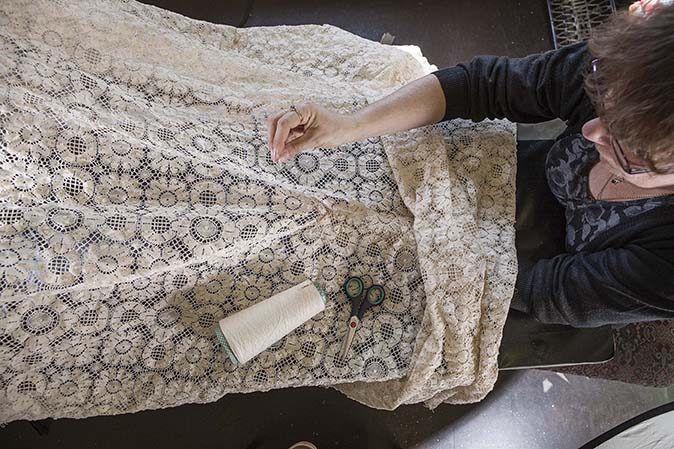
At the heart of the business are the Leavers lace machines, which revolutionised the industry by producing lace that was as close to handmade as a machine can get. It performs two functions: one is to twist the threads (mostly Egyptian cotton now, although, in the past, silk and linen were used) to form a net and the second is to add pattern, turning a basic net into exquisite lace.
Although the majority of the world’s lace production now happens in Asia, there’s still a demand for the British product. ‘We have sold to most of the international fashion houses over the years,’ asserts Mr Mason. ‘The Duchess of Cambridge wore Cluny lace on her wedding day, as did her bridesmaids.’ Perhaps it will make another appearance at Prince Harry and Meghan Markle’s wedding on May 19?
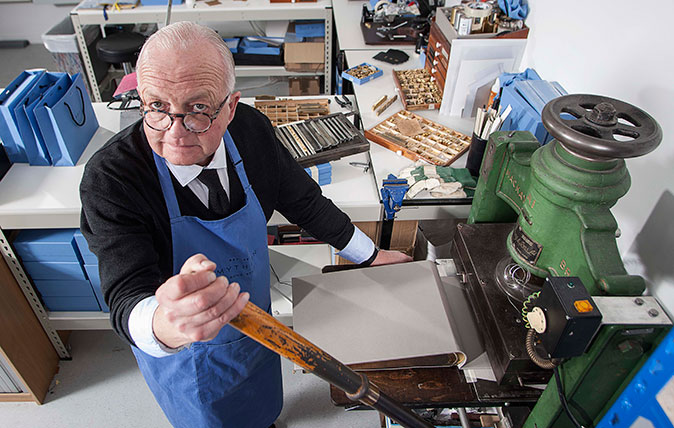
The gold stamper: ‘The younger generation is very appreciative of artisan work – they’re the ones driving the trend’
This week's Living National Treasure is John Timms, the man who leads the team that stamps gold lettering into thousands
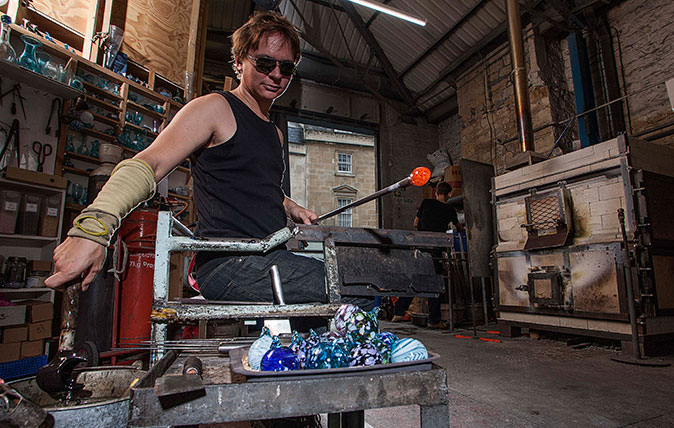
Credit: Living National Treasure: The Glassblower - ©Country Life/Richard Cannon
Sign up for the Country Life Newsletter
Exquisite houses, the beauty of Nature, and how to get the most from your life, straight to your inbox.
The Glassblower: 'When something goes wrong you can't fix it – you just sling in into the bosh bucket and start again'
Ian Shearman's team of glassblowers are still making glass using a technique that's 2,000 years old. Mary Miers found out
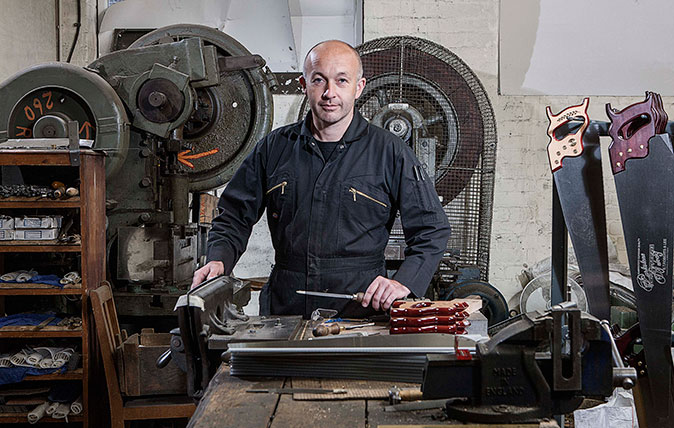
The Saw Maker still turning tools by hand: 'Cabinet makers love these – a lot of doctors and surgeons buy them'
Not all saws are mass-produced in Far East factories. Kathryn Bradley-Hole spoke to the craftsmen at Thomas Flinn, a Yorkshire
Country Life is unlike any other magazine: the only glossy weekly on the newsstand and the only magazine that has been guest-edited by HRH The King not once, but twice. It is a celebration of modern rural life and all its diverse joys and pleasures — that was first published in Queen Victoria's Diamond Jubilee year. Our eclectic mixture of witty and informative content — from the most up-to-date property news and commentary and a coveted glimpse inside some of the UK's best houses and gardens, to gardening, the arts and interior design, written by experts in their field — still cannot be found in print or online, anywhere else.
-
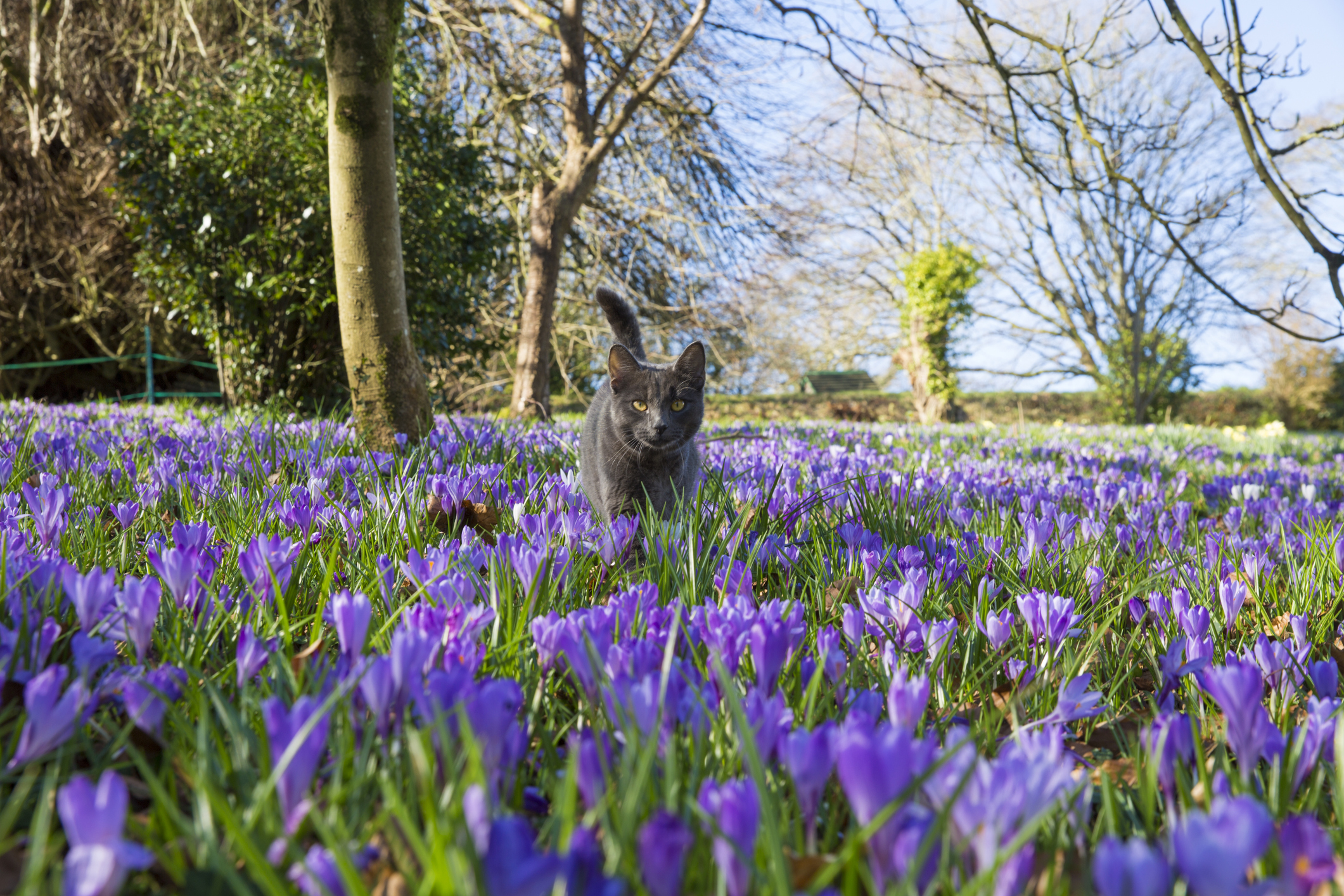 The King's favourite tea, conclave and spring flowers: Country Life Quiz of the Day, April 22, 2025
The King's favourite tea, conclave and spring flowers: Country Life Quiz of the Day, April 22, 2025Tuesday's Quiz of the Day blows smoke, tells the time and more.
By Toby Keel
-
 London is the place for me* (*the discerning property buyer)
London is the place for me* (*the discerning property buyer)With more buyers looking at London than anywhere else, is the 'race for space' finally over?
By Annabel Dixon
-
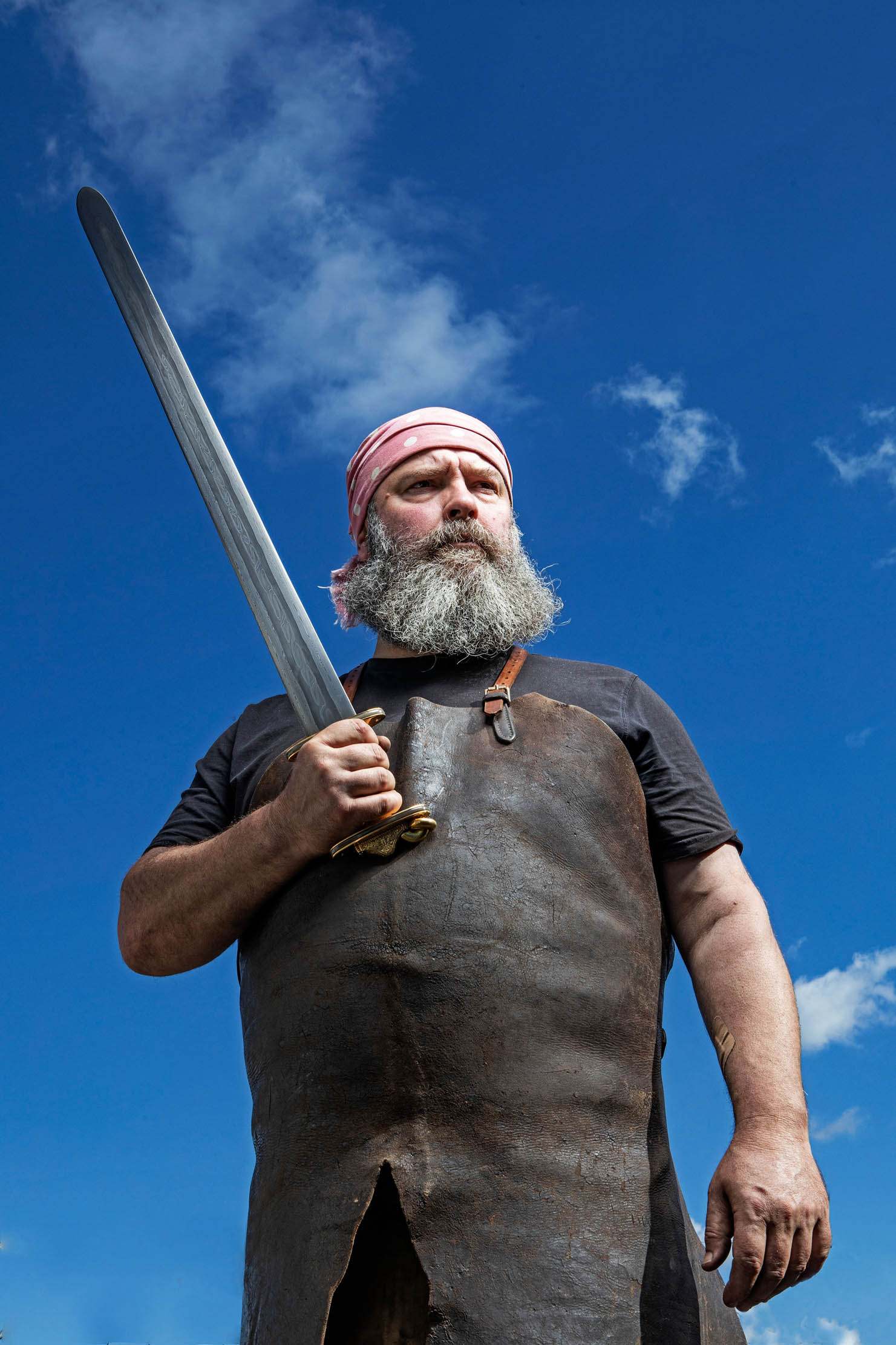 The 21st century sword maker: 'There’s something appealing about getting metal hot and smacking it with a hammer'
The 21st century sword maker: 'There’s something appealing about getting metal hot and smacking it with a hammer'Practising ancient techniques to craft modern heirlooms, bladesmith Owen Bush handmakes both decorative and practical knives or weaponry, each with their own personalities, says Claire Jackson — with some of his swords celebrities in their own right. Photographs by Richard Cannon for Country Life.
By Claire Jackson
-
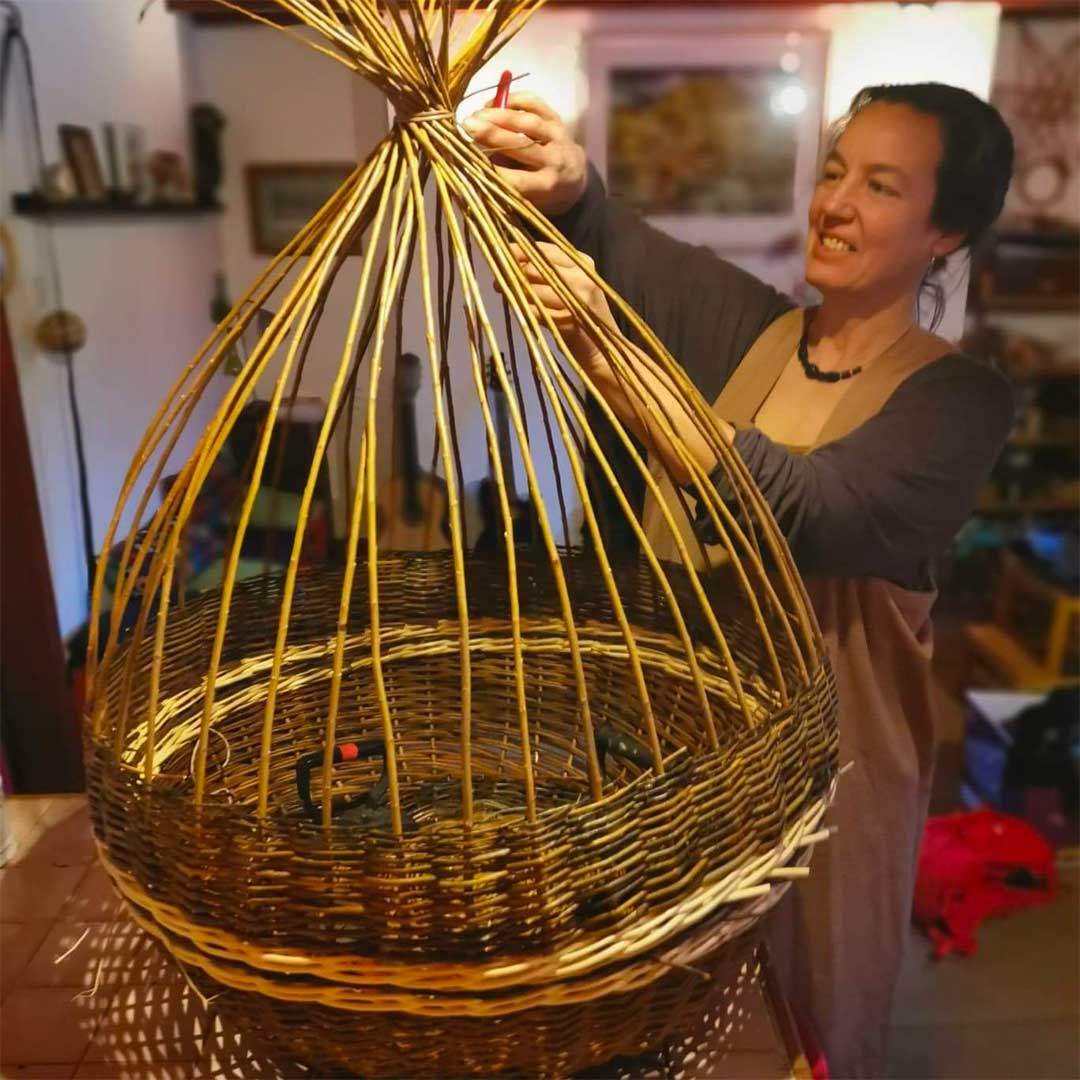 The secrets of the basket-maker: 'With a basket, you watch it grow before your very eyes'
The secrets of the basket-maker: 'With a basket, you watch it grow before your very eyes'Anna Stickland has woven a new career as a basket-maker; she spoke to Nick Hammond.
By Country Life
-
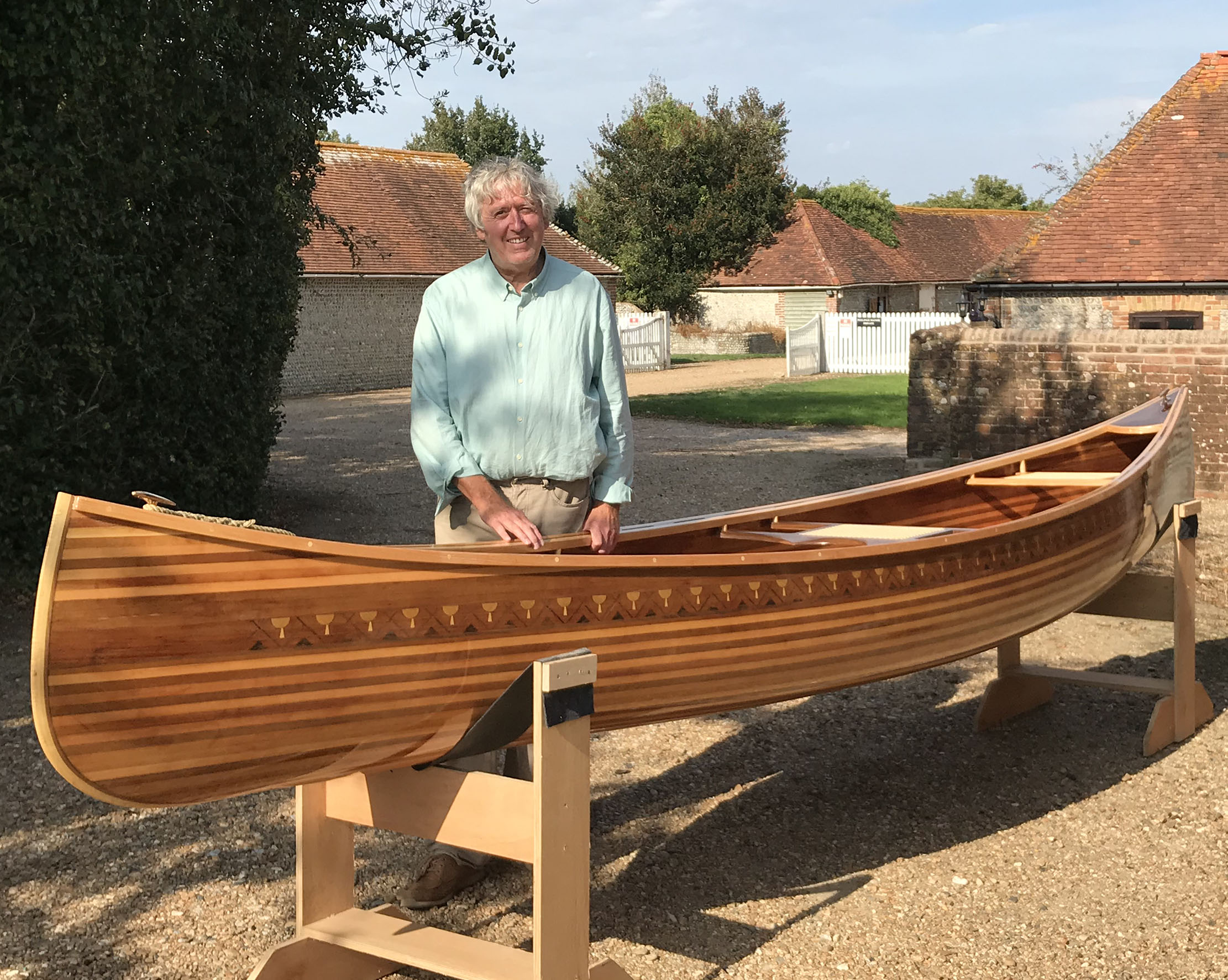 Where I Work: Huw Edwards-Jones, master craftsman and canoe maker
Where I Work: Huw Edwards-Jones, master craftsman and canoe makerThe ups and downs of 2020 didn't see Huw Edwards-Jones change where he worked, but it did change what he did: he's used the time to switch from creating beautiful hand-made furniture to spectacularly beautiful canoes. He spoke to Toby Keel.
By Toby Keel
-
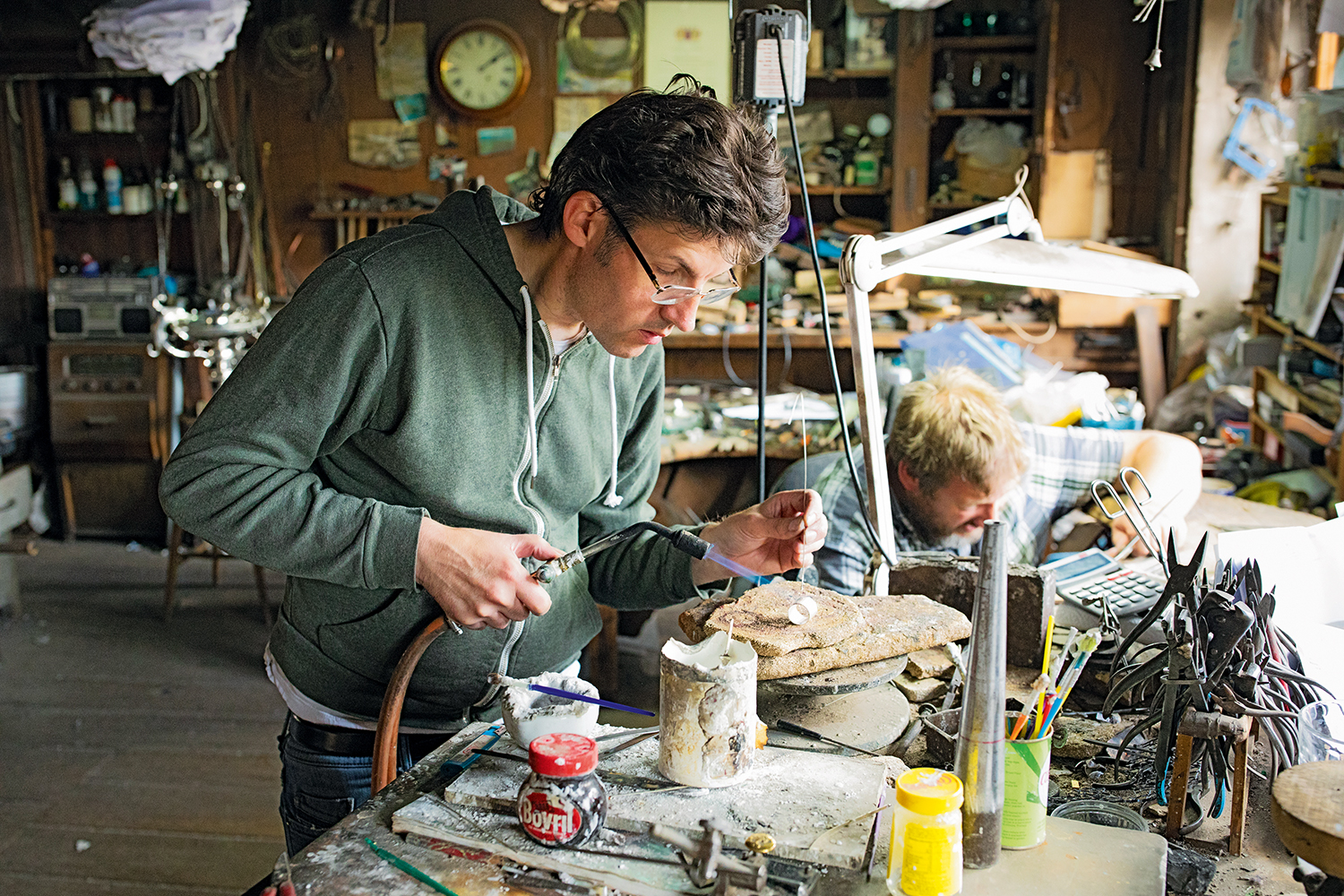 In Focus — The Cotswolds silversmith: 'We make beautiful works of art to last for hundreds of years'
In Focus — The Cotswolds silversmith: 'We make beautiful works of art to last for hundreds of years'Tucked away in an old Cotswolds silk mill, expert craftsmen harness a century of expertise to raise, planish and finish fine gold and silverware. Jeremy Flint visits Hart’s of Chipping Campden.
By Country Life
-
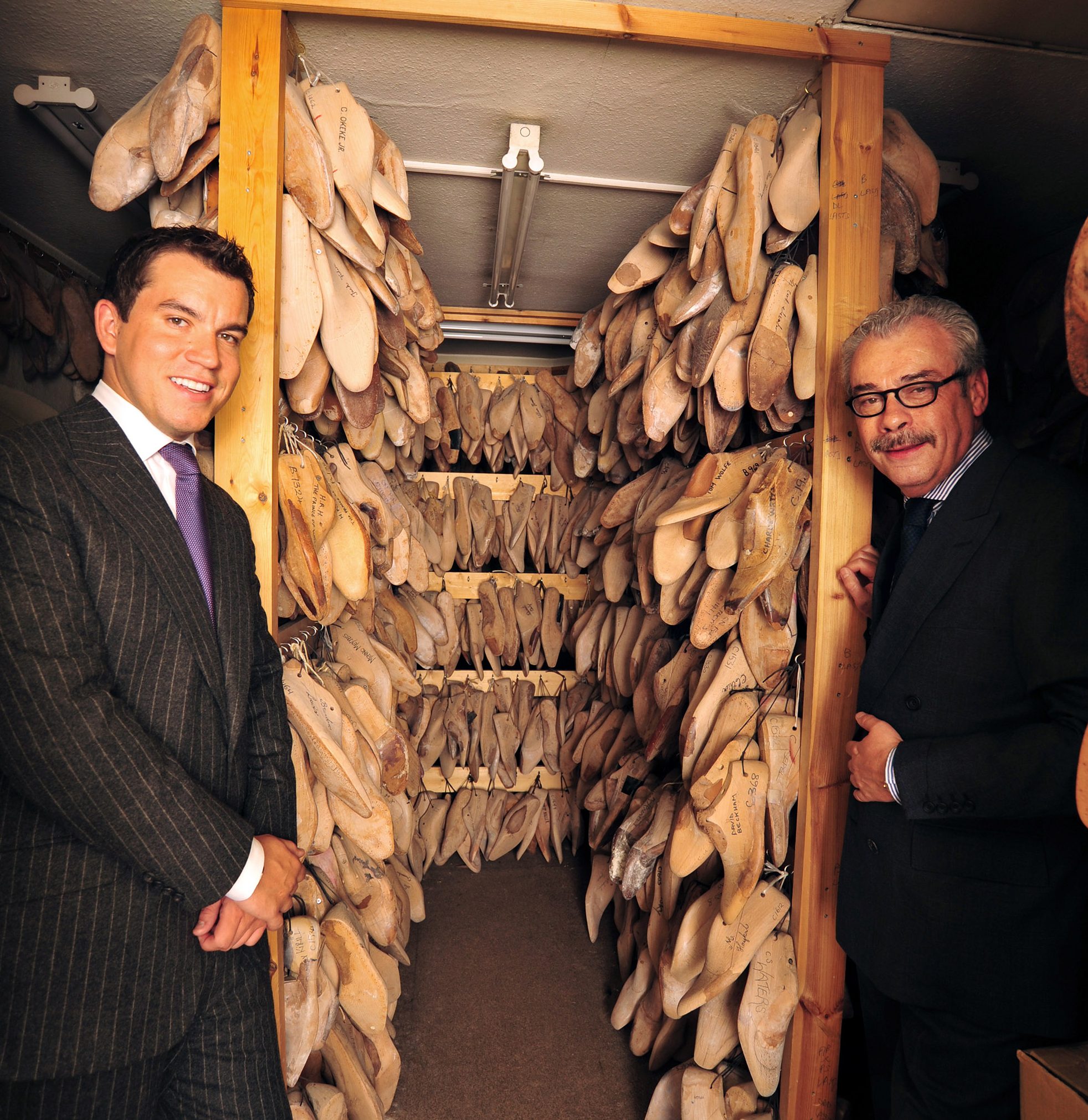 The master shoemakers who shod Churchill: 'Demand is through the roof, but it takes six to eight months to make a pair'
The master shoemakers who shod Churchill: 'Demand is through the roof, but it takes six to eight months to make a pair'The co-owners of bespoke shoe shop George Cleverley, father and son George Glasgow Snr and George Glasgow Jnr, talk to Hetty Lintell.
By Hetty Lintell
-
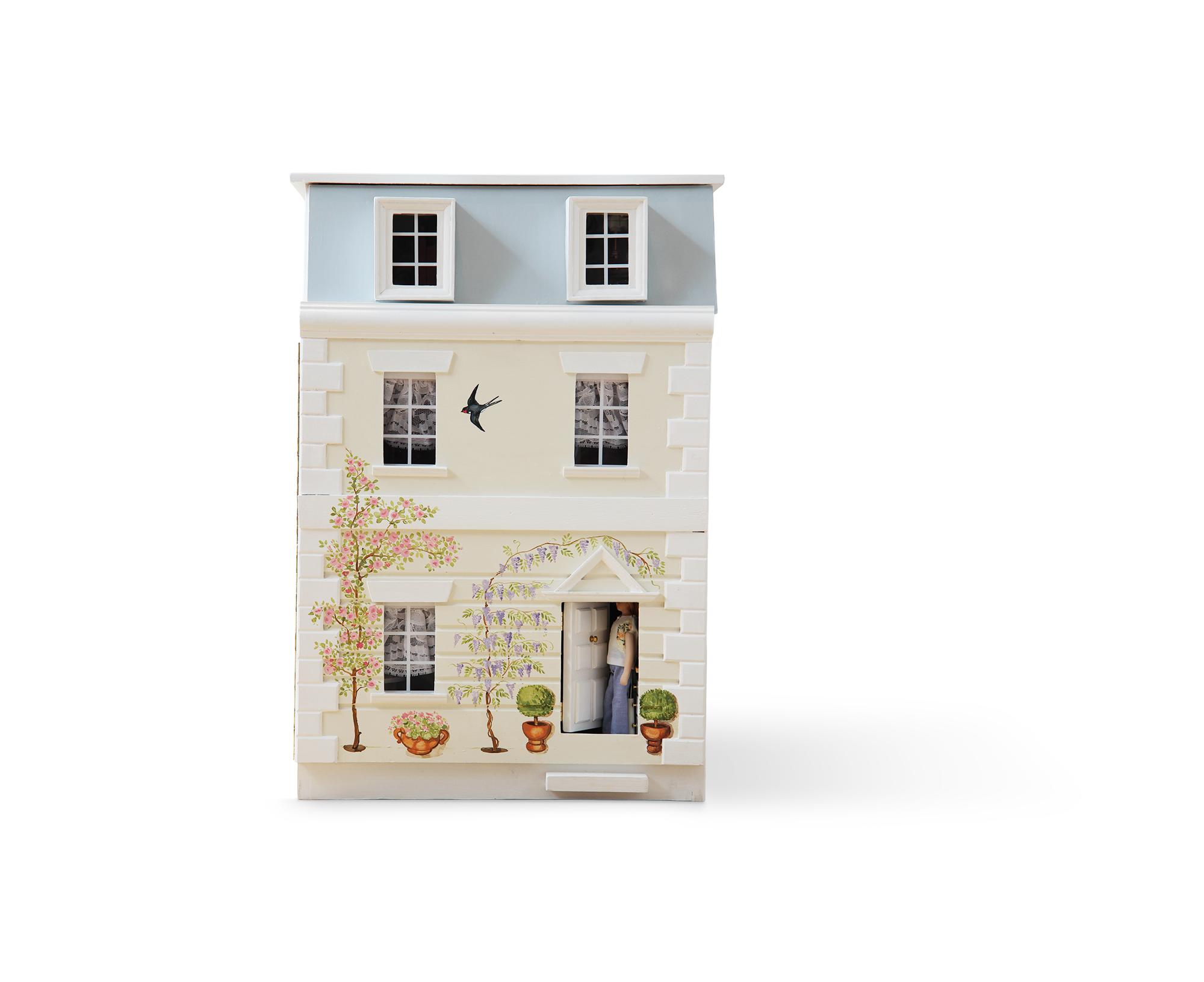 The dolls' house-maker: 'This is a place to capture the dreams of children and adults alike'
The dolls' house-maker: 'This is a place to capture the dreams of children and adults alike'Dragons of Walton Street have been making beautiful dolls' houses for four decades, and the company is still run by Lucinda Croft, the daughter of the founder. She spoke to Hetty Lintell.
By Hetty Lintell
-
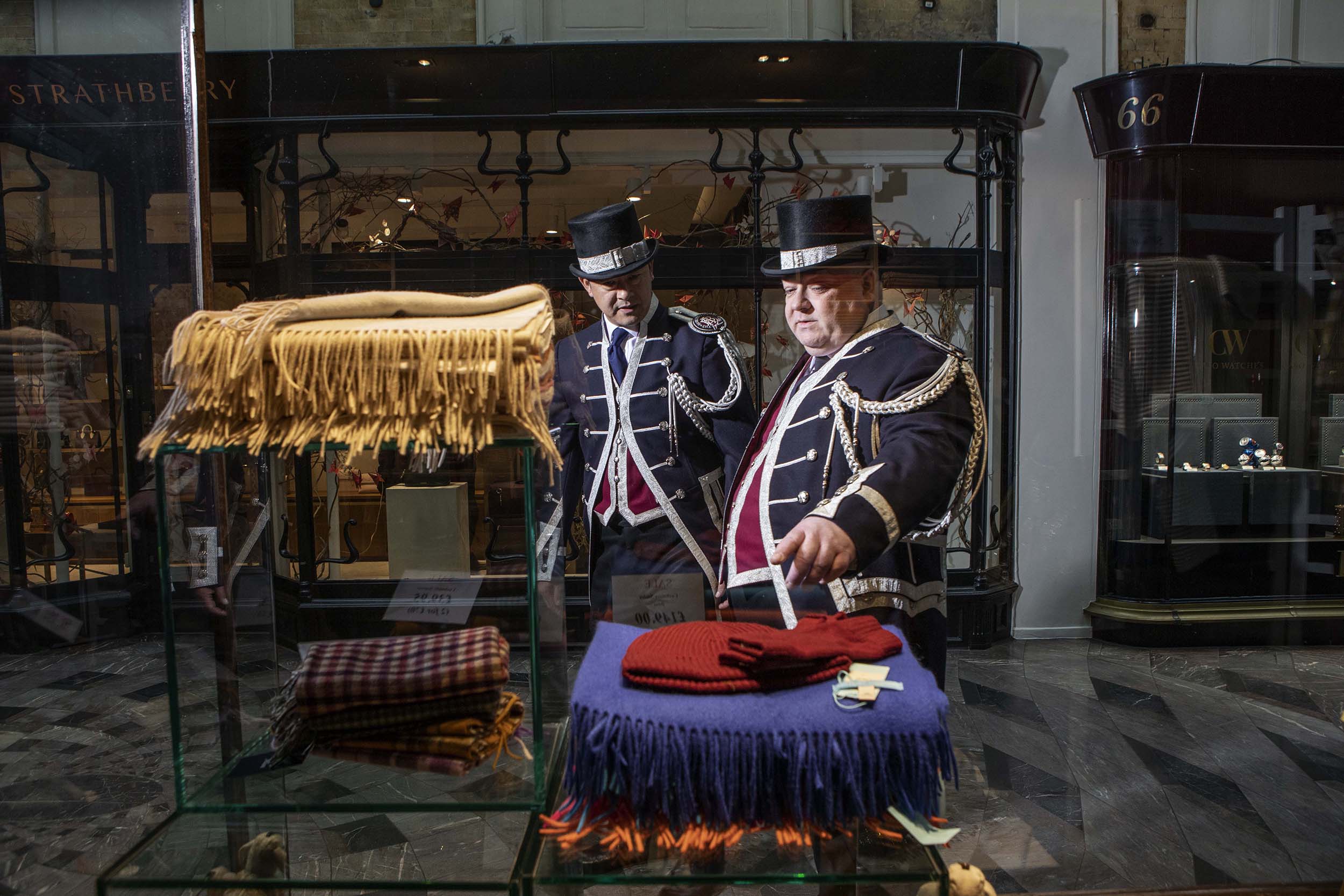 Meet the Beadles: The centuries-old private police force at Burlington Arcade, the world's swishest shopping mall
Meet the Beadles: The centuries-old private police force at Burlington Arcade, the world's swishest shopping mallThis week marked the 200th birthday of London’s Burlington Arcade. Adam Hay-Nicholls goes undercover with the Beadles, its private police force. With photographs by Richard Cannon.
By Country Life
-
 The bagpipe-maker: 'The older customers want me to make their pipes sharpish; they want to be sure they’re not dead before they get to play them!'
The bagpipe-maker: 'The older customers want me to make their pipes sharpish; they want to be sure they’re not dead before they get to play them!'Hours of intricate work are needed to craft a set of bagpipes. Kate Lovell spoke to bagpipe-maker Dave Shaw to find out how it's done.
By Country Life